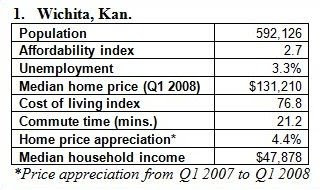"We got a thousand points of light For the homeless man We got a kinder, gentler,Machine gun hand.."
* * *
Let me get this straight, government regulation is hap hazard at best. They have been the regulators to this point and look what a fab job its done to the market place. I honestly believe in markets, and I know in my heart of hearts that moving forward the market will regulate itself in ways the government regulators only dreamed they could achieve. I know this because I am knee deep in this business. The most
inefficient dealings I have come with government
agencies in respect to finance. Billions of dollars are at play and don't think for a second the crooked practices in this past market will be tolerated by the mortgage industry moving forward. The truth of the matter is markets go up and down and it just so happened this past market was molested by crazy actions of many people on all sides of the fence; and some say due to the government regulation. We see how well the government
officials manage the city, state and national finances and we are to think THEY could do better then experts in the very field of area of concentration. Loan programs have changed, qualifying is much more in line with
home ownership responsibility. I'd also like to add - what's the news still doing promoting the negative aspect of this housing crisis. As I said earlier I am knee deep in all aspects of this business and see with my very own eyes a lot of action in
certain price ranges. I see price stabilization in a lot of areas, and believe it or not; daily on the
MLS you see a few more price increases. Some people are getting fantastic opportunity for
home ownership - steer renters to ownership. Buy low - and it is as low as it is going to go for the greater central
California area. This fear that is shadowing over many people on the fence to buy is
wacky - almost - and I say almost - as
wacky as people climbing all over each other to buy at the top of the market in areas that are not land locked.
I still believe the innovation of the market place is still being led by programs such as the one my company
offers http://mikesforsalebyowner.blogspot.com/2008/05/my-co-offers-best-home-loan-peirod.html to clients looking to take advantage of a down market.
Proposed measure (s)
One measure, SB 1137 by Senate President Pro
Tem Don
Perata (D-Oakland), requires lenders to repeatedly try to contact homeowners who may be in danger of defaulting to stave off a foreclosure. The bill also provides renters living in foreclosed properties more time to find a new home.
Folks - do our tax dollars need to be spent on matters like this? It may come to no surprise that this is Standard Operating Procedure for most lenders.AB 2740 by Assemblywoman Julia
Brownley (D-Santa Monica), a bill aimed at loan-servicing abuses such as failing to properly apply payments or post them in a timely manner.
Another matter that is standard operating procedure for most loan servicing. This crooked practice happens in many industrys and is a very bad thing, but to spend time, money and resources. The percentage of all mortgages at least 30 days past due rose to 6.35% in the first quarter from 5.82% in the fourth quarter of 2007, according to the Mortgage Bankers Assn.
I understand the panic, the stress, the worry - but government
regulation is not the answer. How about do what your suppose to do with the current
regulation and not make new
regulation to hide the faults and short comings of this go around.....
Innovation in self regulation will be the strongest ally to the consumer. I know that runs counter
intuitive for a lot of people; but let's enforce the current regulation and laws vs. adding more regulation and laws to off set the non enforcement of current rules and regulation.-------------------------------------------------------------------------------------------------How can we keep the "mortgage crisis" from happening again? Those who study mortgage trends have said that there has been a pretty consistent pattern of a "bust" in mortgages about every 18 years since World War II. We've seen problems like this before and we will survive this "crisis." If you're looking for a mortgage right now, rates are still very good. The world is not ending (as the politicians who are itching to "help" would have us believe). In my opinion, the best way to prevent this from happening again, is for the Free Market system to be allowed to punish bad decisions and reward good decisions (as it always does). Government regulation is just something politicians and anti-business people like to propose because it makes them feel good. In reality, the mortgage industry is already highly regulated... and yet the "mortgage crisis" occurred. One of the many regulations that the government has is to disclose VERY clearly and plainly the interest rate of the loan and any adjustments to the interest rate... and yet borrowers claimed that they "didn't understand what they were signing." Now to your question... In summary, EVERYONE involved played a part in the "bust" to some extent or another. BORROWERS -- Rather than living within their means, many borrowers decided that they wanted to have a bigger, more expensive house than they could afford. In order to afford these houses, they often turned to loan products such as "Interest Only" loans. With IO loans, you basically pay the minimum amount possible every month and the principal is never reduced. To complicate matters, some loans featured "zero down" where the borrower had absolutely NO equity in the property. Here is an illustration of a typical problem: A property is worth $800,000 at the time of purchase. The borrower takes out an Interest Only loan for $800,000 (putting nothing down). Then the property value drops to $700,000. Now the borrower has a loan for $800,000 for a property that is only worth $700,000. The borrower has ZERO equity in the property so guess what... they walk away from the property and the lender ends up taking the loss. MORTGAGE COMPANIES (BAD OR POOR UNDERWRITING GUIDELINES) -- In an effort to make as many loans as possible (and to sell these loans to foolishly eager investors), many mortgage companies relaxed their guidelines beyond reason. Some loans had a Loan-to-Value (LTV) ratio of 100 (or higher on rare occasion!). If the property was worth $100,000, then an LTV meant that $100,000 was loaned to the borrower (as stated before, no equity). The lower the LTV, the less risky (and more desirable) the loan is. Another arguably stupid mortgage product was the "80-20" loan. A loan with an LTV of 80 or lower is not considered risky in the mortgage business. Therefore, Mortgage Insurance (MI) is not required for loans with an LTV of 80% or less. (If a borrower has an LTV of 85 and pays it down to 80, then they can drop the MI from the loan.) MI is basically insurance against borrower default. For example, if a borrower defaults on his loan and the lender forecloses and sells the property and loses $2000 in the process, then the MI company will cut a check to the lender for $2000 to make the lender "whole." Rather than requiring borrowers to carry MI on their loans (which would have mitigated risk), the mortgage companies allowed the borrowers to take out a second loan on the same property (a "second lien" or Home Equity Line of Credit or HELOC). This HELOC money was then used as the "money down" on the first loan so that MI could be avoided. For example, if the property is worth $100,000, the borrower might get a HELOC for $20,000 and put that money down on the first loan, thereby lowering the LTV to 80 (thereby exempting them from MI). Another popular loan was an Adjustable Rate Mortgage (ARM) or "Fixed-Adjustable" (where the Interest Rate is fixed for a few years and then starts to adjust (up or down) based on a financial instrument). Borrowers were allegedly given a low "teaser rate" and then (because they bought too much house) couldn't make the payments with the higher interest rate when the rate adjusted. (It seems hard for me to believe that an interest rate adjustment would be so severe that it would prevent someone from making their payments, but that's what the borrowers allegedly claim.) Maybe this is too many detailed examples, but suffice it to say that a lot of stupid mortgage products were offered by mortgage companies (and accepted by borrowers). INVESTORS -- In their quest to make a "fast buck", investors bought up tons of these mortgages since these riskier "sub-prime" loans brought higher returns (higher interest rates). These investors should have performed a "due diligence" on the loans they bought; but they didn't. When investors purchase loans, there is usually (if not always) a "buyback" provision. This means that if a loan goes bad and the investor finds that there was some irregularity in the underwriting (the loan decisioning process) that the mortgage company who sold them the loan is required to "buy back" the loan. The problem is that most mortgage companies are "cash poor" (meaning that they borrow the cash that they lend from a "warehouse lender" temporarily until they can sell the loan to an investor and pay back their warehouse lender). So when these loans started going bad (hundreds of millions of dollars worth!), the investors demanded the mortgage companies buy back the loans (according to their agreement). So mortgage companies were now looking at buying millions and millions of dollars worth of loans back when they had little or no money of their own! So what happened? Countless mortgage companies declared bankruptcy. With all of the hullaballoo around bad mortgages, investors decided to stop buying sub-prime mortgages. Since there was nobody buying these mortgages and since mortgage companies don't have their own cash, mortgage companies found that they could no longer make these sub-prime loans. The sub-prime market dried up almost instantly. RATING AGENCIES -- The job of rating agencies is to investigate the creditworthiness of investments (many of which included mortgage debt). These agencies did not do their due diligence and ended up giving these investments an artificially high rating. So investors thought the investments were less risky than they were. Investors will always buy investments that have a high return and low risk (but obviously they weren't low risk). THE GOVERNMENT -- The government has always put pressure on mortgage companies to make loans to poor and/or minority borrowers. Because these borrowers typically have worse credit and/or less income and/or greater debt, they had to go to the "sub-prime" market to get a mortgage loan. Is it so hard to imagine that a borrower with less income, more debt and bad payment habits will default on a loan (especially when they've put little or no money down)? Of course not. But the government continues to "wish away" laws of basic economics and common sense. In order to "do right" by poor people and minorities, the government expected mortgage companies suspend their normal sound underwriting guidelines and business sense. (Obviously, the sub-prime problem goes beyond just poor borrowers, but my point is that the government contributed to the crisis to some extent.) The government is now poised and ready to exacerbate the crisis beyond what it is now by "freezing" interest rate adjustments. Here is an illustration of the problem: Let's say you have $5000 in cash. I'm a bank and I tell you that if you deposit your $5000 with me that I will pay you 1% during the first 2 years but then I will pay you 7% after those 2 years. So you deposit your money at the low rate of interest. After two years (when you're about to get your higher interest rate), the government comes in and says, "Sorry. You're not getting your 7% as promised. In fact, you can't take your money out of that bank; you must leave it there and only collect 1% for another 10 years." What will happen when you have another $5000 to deposit? Will you put it in my bank? Absolutely not. Why? Because you don't know if you'll really get the return you agreed upon. In the same way, if the government steps in and says to the investor/lender, "Sorry... you're not getting the return on your money that you negotiated... and you can't take back your money; you've got to leave it at the low rate," then guess what the investor is going to do. He will never invest in mortgages again! He will take his money to China or municipal bonds or any other vehicle in which he can get a RELIABLE return on his money. If he DOES decide to put money into mortgage debt again, he will demand a higher return to compensate for the greater risk that the government will step in and "help" again. (In other words, Interest Rates on mortgages will go up for EVERYONE!) Thank you Big Government Democrats and George Bush! REGIONAL PROBLEMS -- Some regions in the USA had events that made the mortgage problems particularly bad. For example, inflated property values in California started deflating. Condos in Florida didn't sell as thought and many sit vacant. Companies providing jobs in the "rust belt" (such as Michigan) have moved or gone under; thereby leaving the local homeowners with no income with which to make their mortgage payments.

 I get about 100 to 150 e-mails a day asking me about these services that charge to help stop foreclosure. I've heard from $1500 to $6500 dollars - and each time I tell them we do it at NO COST - I get this response as if - the other guys must be better since they are charging me - wrong. Your the SUCKER (I need to drive the point home - no disrespect) and I told you that in your e-mails. In real estate deals - monies are earned upon fullfilment and not simply - TRYING. I know foreclosure must be a very streeful time but know that good people still exist in the world and those people are compensated by the BANK . If I can be of any help michael@valleyfinance.com
I get about 100 to 150 e-mails a day asking me about these services that charge to help stop foreclosure. I've heard from $1500 to $6500 dollars - and each time I tell them we do it at NO COST - I get this response as if - the other guys must be better since they are charging me - wrong. Your the SUCKER (I need to drive the point home - no disrespect) and I told you that in your e-mails. In real estate deals - monies are earned upon fullfilment and not simply - TRYING. I know foreclosure must be a very streeful time but know that good people still exist in the world and those people are compensated by the BANK . If I can be of any help michael@valleyfinance.com







